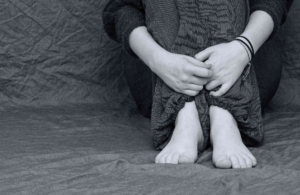The future is unknown. That’s something that can unsettle you, or it may be something you take easily in your stride. Most of us struggle with what we don’t know or with what we can’t control.
That struggle can be heightened if what you’re facing isn’t pleasant and it seems inevitable. People deal with that in various ways, including denying their feelings or facing them head-on. One way of dealing with such situations is through anticipatory grief.
More than grieving a loved one before they’re gone.
 When you love someone, you want them to be a part of your life for as long as possible. Unfortunately, it isn’t always up to us what happens to our loved ones. When someone you care for is sick, for instance, you may begin to prepare yourself for their end of life.
When you love someone, you want them to be a part of your life for as long as possible. Unfortunately, it isn’t always up to us what happens to our loved ones. When someone you care for is sick, for instance, you may begin to prepare yourself for their end of life.
It may feel as though you have already lost them, even though they are still alive. That’s what anticipatory grief is; grieving a loved one before they’re gone or grieving a loss before it occurs.
While anticipatory grief may be felt by people who are preparing themselves for the loss of their loved one, it can also be experienced by the individuals themselves as they grieve their own impending death.
Not only that, but anticipatory grief can also set in when the anticipated change is a choice, and an exciting one at that. For instance, finding a new job and moving to a new city can bring about anticipatory grief as one considers the impending loss of relationships with friends and good neighbors.
As such, anticipatory grief is not only about loss related to death, but it can also refer to losses that aren’t related to death. Anticipatory grief is about grieving what we think we might lose, while conventional grief is about grieving what we have already lost. Anticipatory grief thus looks forward, while conventional grief looks backward.
Causes of anticipatory grief.
Anticipatory grief, which is also known as preparatory grief or anticipatory loss, is how a person copes with the reality that a significant change is on the horizon. It can set in days, months, or years before the loss actually occurs, hence its name. A person can experience anticipatory grief because a loved one is sick and may die, but also because of other experiences such as losing a loved one through divorce.
Other scenarios that may prompt anticipatory grief include the following:
 Loss of a body part.
Loss of a body part.
Whether the loss of a limb through amputation or the loss of a body part such as the breast through a mastectomy.
Diagnosis or progression of a degenerative disease.
Diseases such as Alzheimer’s disease, other forms of dementia, or Parkinson’s disease can change a person significantly, making it feel like one is losing themselves, or that one is losing their loved one as the disease progresses.
Awaiting an organ transplant.
If a person needs an organ, that can bring about anticipatory grief as they think about the possible scenarios of their own death. However, it’s also possible for one to also grieve for their potential organ donor, and the death that would have to happen to extend one’s own life.
The impending loss of a pet.
Some pets are like members of the family, and when they are advanced in age or have serious health problems, that can trigger anticipatory grief.
 Pregnancy and birth complications.
Pregnancy and birth complications.
A baby born prematurely may trigger anticipatory grief as the new parents grieve the baby and the birth experience they wished for. Additionally, some mothers may take not carrying their baby to term as a personal failure, and they may mourn that loss. Other issues such as in-utero complications that indicate that the unborn baby won’t survive will also trigger anticipatory grief.
A new life situation.
Positive changes, including changes such as a new job, a new relationship, moving to a new neighborhood, or your child moving away for college can prompt anticipatory grief as one faces a potential loss of identity, friends, or daily routines.
Signs of anticipatory grief.
Anticipatory grief shares many of the same symptoms that apply to conventional grief. Some of the signs of anticipatory grief include the following emotional, physical, and behavioral signs:
- Being angry or irritable.
- Experiencing denial.
- Being lethargic, lacking motivation.
- Anxiety.
- Withdrawing from, and desiring to withdraw from social situations.
- Guilt.
- Feeling desperation.
- Feelings of dread.
- Intense preoccupation with the impending loss or with the dying person.
- Feeling lonely.
- Sadness, tearfulness, and losing control over your emotions.
In the same way as with conventional grief, anticipatory grief also has stages of its own. You can’t always tell how you’re going to feel tomorrow, and you never quite move past certain feelings as you grieve. Some days, you may find yourself experiencing many emotions, and then other days you feel little to nothing, or your day is dominated by one thought or feeling.
Common stages.
As such, anticipatory grief, like conventional grief, is unpredictable, but it’s helpful to understand its various stages so that you’re not surprised.
The four stages of anticipatory grief are:
- Acceptance. This is the acceptance that death is inevitable, and it is often accompanied by feeling sad and depressed.
- Concern. This stage is when one feels concerned for the dying person or their family. The person who’s dying may be concerned about what it’s like to die, and what comes next for them and their family. The loved ones of the dying person may feel regrets as they consider past interactions or disagreements.
- Rehearsal. For the person who is dying and their loved ones, they may begin rehearsing what is to come by focusing on funeral arrangements, estate management, saying the appropriate goodbyes, and wrapping up any affairs that need attention.
- Imagining the future. The dying person as well as their family and friends may envision what life will be like without their loved one, whether that’s referring to holidays, living conditions, or other scenarios.
Ways to cope when experiencing anticipatory grief.
Anticipatory grief is one way for a person to process and resolve issues related to a life-changing event, whether the loss of a loved one, one’s own death, or other kinds of losses. Anticipatory grief can provide a person with the opportunity to address the possible consequences of the impending loss, and to deal with their feelings about it all now rather than after the fact.
As with any other kind of loss, it is important to address anticipatory grief, and that can be done by talking with someone about what you’re going through. You don’t have to go through it alone, as there are professional grief counselors who can help you walk this journey.
Some of the ways to cope with anticipatory grief in a healthy way include the following:
Pursue hope and a good quality of life.
Hope may look different when you’re caring for someone at the end of their life. It may look like having a good day with their health. You can also focus on improving their quality of life as much as possible, so that their remaining time is rich with memorable experiences, for instance.
 Pursue connection.
Pursue connection.
Anticipatory grief allows you to begin finding closure even while your loved one is still alive. However, don’t let this prevent you from spending quality time with them, and enjoying their presence here and now.
Find ways to connect with your loved one through cherished hobbies, games, and conversations. Whatever is available and possible given their health, use it to pursue connection.
Find support.
Whether you form a community of support around yourself which is comprised of other loved ones, a grief support group, or a grief counselor, you can walk that journey with others by leaning on others and asking for help when you need it.
Having a space where you can share your feelings and experiences is important, so consider speaking to a grief counselor who can help you cope with your grief now as well as after the death of your loved one.
“Sad Feet”, Courtesy of Anemone123, Pixabay.com, CC0 License; “Running Away”, Courtesy of josealbafotos, Pixabay.com, CC0 License; “Embrace”, Courtesy of geralt, Pixabay.com, CC0 License; “Snowy Forest Road”, Courtesy of shogun, Unsplash.com, CC0 License









